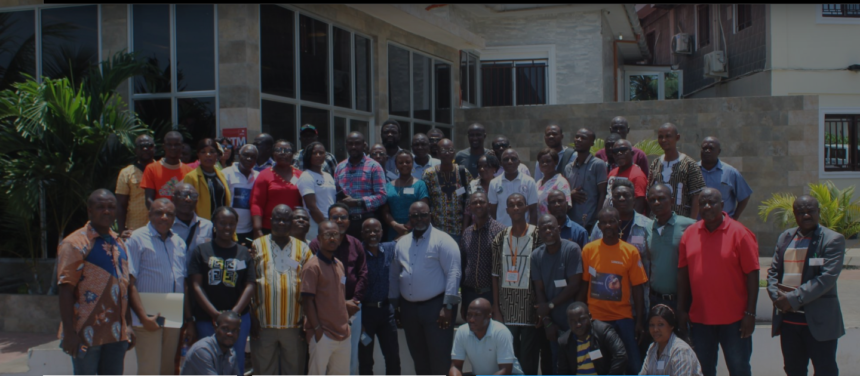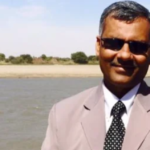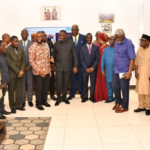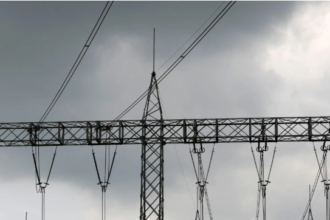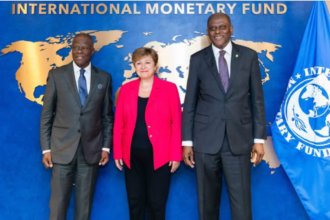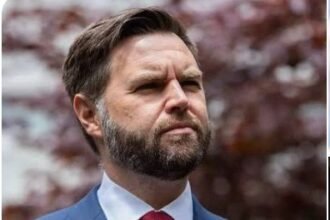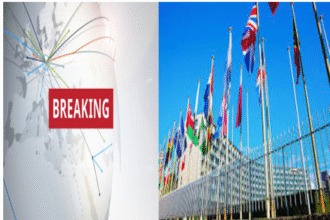President Boakai Suspends Top Officials Amid Explosive Allegations of Misused Funds Meant for Liberia’s Most Vulnerable.
Monrovia, Liberia – A potentially far-reaching corruption scandal has shaken the Liberia Refugee Repatriation and Resettlement Commission (LRRRC), leading President Joseph Nyuma Boakai to suspend three high-ranking officials amid accusations of financial misconduct that may have diverted crucial funds from the country’s refugee support programs.
LRRRC is the Government of Liberia lead humanitarian Agency that provides international protection for Refugees, Stateless person, internally displaced, mixed National and other people of concern (POCs).
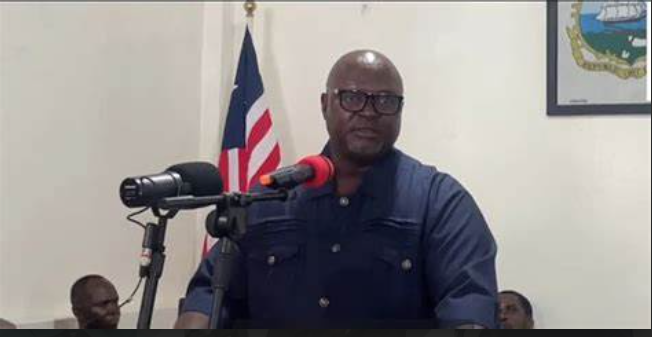
In an unprecedented move, President Boakai suspended LRRRC Executive Director Patrick Worzie, Deputy Executive Director for Operations Richard Hoff, and Deputy Executive Director for Administration AJ Armah Karneh. The suspensions are effective immediately and come without pay as Liberia’s Anti-Corruption Commission (LACC) begins a comprehensive investigation into their alleged roles in a series of unauthorized financial transactions.
Misallocated Funds and Phantom Beneficiaries
The investigation follows allegations raised by Daniel Jackson, a former LRRRC employee who disclosed damning evidence to the public on Spoon Radio and social media. Jackson shared bank documentation allegedly revealing that checks issued by the Central Bank of Liberia (CBL) and intended for displaced and refugee assistance programs were instead misdirected to individuals and entities with no connection to Liberia’s refugee beneficiaries. According to Jackson, the siphoned funds total thousands of U.S. dollars and millions of Liberian dollars—resources crucial for the already underfunded refugee agency tasked with supporting some of Liberia’s most vulnerable populations.
“We are talking about checks meant to assist displaced Liberians that were redirected to non-existent or unqualified beneficiaries, some connected to the suspended officials,” Jackson alleged during a Facebook live broadcast. He presented evidence suggesting that hundreds of checks were generated under the pretense of serving Liberia’s displaced communities, only to be cashed by associates and entities tied to senior LRRRC officials.
The documents reportedly show authorization signatures from Worzie and his deputies on multiple payments to what Jackson describes as “fictitious” or “shell” entities—suggesting a coordinated scheme to exploit the organization’s financial systems.
Public Outcry and a Presidential Mandate
The allegations have sparked widespread public outrage in Liberia, where corruption in public offices has long plagued the country’s development. In response, President Boakai, a staunch advocate for governmental transparency, took immediate action by suspending the implicated officials and mandating their cooperation with the LACC’s probe. The President’s office stated that this intervention reflects his commitment to ethical governance and rooting out corruption at every level of public administration.
“This administration holds integrity and accountability as pillars of governance,” the President’s office stated, underscoring that officials implicated in corruption will face full legal repercussions.
The Scope of the Investigation
The LACC, charged with carrying out the investigation, will focus on the financial dealings of the LRRRC’s leadership, scrutinizing every transaction related to refugee support and assistance funds under their purview. Additionally, the President instructed all suspended officials to return government assets immediately, with interim duties now managed by the Commission’s Human Resource Director.
A source close to the investigation, who spoke under the condition of anonymity, indicated that preliminary findings already suggest substantial misappropriations over several months. “We are seeing a clear pattern here—of using agency funds for personal gain—compromising the agency’s capability to serve refugees and displaced citizens,” the source confirmed.
Calls for Broader Oversight and Institutional Reform
This incident is reigniting conversations within Liberia regarding the need for systemic reforms to prevent public officials from accessing or abusing state funds. Transparency advocates and civil society organizations have echoed calls for additional oversight mechanisms in agencies like the LRRRC, which manage sizable humanitarian aid budgets. The scandal has cast a spotlight on Liberia’s broader struggles with corruption and governance, raising serious concerns about public trust in government agencies.
Jackson, meanwhile, has called on the LACC and General Auditing Commission (GAC) to launch parallel investigations to ensure that no stone is left unturned in tracing all diverted funds and those who authorized their misuse. “The government needs to prevent these corrupt practices by enforcing transparency and monitoring,” Jackson said. “We have the evidence, and it’s time for the LACC and GAC to stop this scandal.”
President Boakai’s Commitment to Accountability
President Boakai’s swift intervention and public commitment to transparency signal his administration’s stance on ethical governance as he seeks to reinforce Liberia’s institutional credibility. As the investigation unfolds, the President’s handling of the LRRRC scandal may set a new precedent for holding public officials accountable in Liberia, a nation striving to overcome longstanding governance challenges.
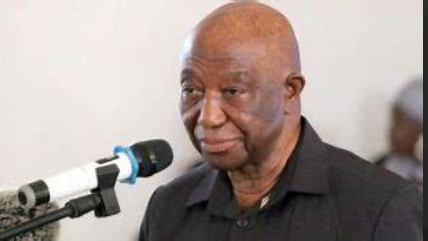
The international community, particularly development agencies and humanitarian organizations partnering with Liberia, will closely watch how the investigation is conducted and whether justice is served in this case. For now, Liberians await further findings, hoping this investigation may lead to a broader crackdown on corruption and increased accountability for those entrusted with public resources.


